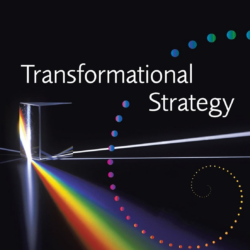Tips for Effective Project Management Part 2
Last month we started our discussion on Tips for Effective Project Management, focusing on the importance of Defining the Scope of Work, Designing a Meaningful Contract, Creating a Practical Schedule of Events and Defining A Positive Working Relationship. In this edition of the newsletter, we continue our discussion by bringing focus to the importance of agreeing on a framework for resolving disputes, establishing an evaluation framework and finishing the project on time.
- Agreeing on a Framework for Resolving Disputes
Every project will have a moment of disagreement or a difference of opinion between the client, facilitator, and others, which can evolve into a dispute that must be resolved. Disputes can be resolved if the facilitator and the client establish a framework for identifying a shared definition of a dispute and ideas on a resolution process. Documenting the dispute resolution process can create a framework of trust and accountability before a dispute emerges.
A written dispute resolution process is important for three reasons. First, disputes should be included in the planning phase of a successful project. Understanding what makes a dispute can help address concerns before they become a problem. Second, a written dispute resolution process provides everyone with a defined framework to work through a dispute before it happens. Finally, with a well-crafted dispute resolution process in hand, the focus of the problem can shift to the process and away from blaming individuals involved in the project.
When building a process to resolve disputes, consider the following tips for success:
- Ask the client how they currently resolve disputes. If you are able to incorporate their existing mechanisms into the process, the client feels comfortable dealing with disputes, which should lead to quickly resolving
- Bring examples of disputes you’ve dealt with previous projects. Walk through timeline you’ve created and asked where disputes are likely to emerge and talk through what you can do to avoid them up front or how you will deal with them if they occur.
- Utilize the IAF Code of Ethics and Values (International Association of Facilitators, 2015) as a starting point in a discussion with your clients about how to resolve disputes.
- Establishing an Evaluation Framework
The strength of a good project is reflected in the meaningful evaluation data collected during and after the completion of the project. The evaluation framework should include information on how to measure the progress of the project, the use of resources and the impact of the overall project. It should include input from the client, the groups, people impacted by the work and the facilitator. The project plan and interim reports should include an evaluation component to demonstrate project progress. Evaluation should be ongoing throughout the project with a final report at the end of the project that includes information on the impact of the project for the client and the group.
Evaluation is important for two reasons. First, collecting and sharing evaluation data provides a basis for ongoing learning and dialogue with the client. The dialogue can explore the questions of “What is going well?”, “what are the learning points?”, and “Where are their opportunities to adjust the project plan?” Second, evaluation is an effective method that demonstrates the value of collaborative planning with the client, which will strengthen the outcomes as well as the facilitator-client relationship.
When building a meaningful framework for evaluation, the following tips for success:
- Generate quantitative and qualitative information for evaluation using a variety of tools. Written evaluations from participants, short online surveys, one on one depth interviews and small group discussions are all valid methods to collect information.
- Use this as an opportunity to get feedback on your competency as a facilitator, which will identify where you might want to guide your continuing professional development.
- Use the ICA ToP Certified Professional Facilitator competencies as a reference guide for building tools for feedback and.
- Finishing the Project on Time
We’ve all been part of projects that drag on unnecessarily and lose momentum, jeopardizing success. Through careful attention, the facilitator and/or the facilitation team can minimize the chance of this happening. Should delays be experienced, facilitators may be tempted to move through some segments of the facilitation plan quickly to make up lost time however it’s important that we honor the needs of the group and not risk moving through too quickly that may see important learnings overlooked. Facilitators must be guided by their professional ethics and standards of their practice while remaining neutral and true to the craft of facilitation when they are working in a group situation. It is important for facilitators to ensure the client, group, and other parties know their role throughout the entire project and understand how this translates into their attention to process and ensuring the group gets what it needs.
Balancing the needs of the group against time is always a delicate balance. Starting and finishing the overall work on time and within budget is important to the client and the group however it should not come at the expense of the outcome. This topic can be introduced when you jointly create a practical schedule of events (reference section 3 previously discussed in this article).
When planning for a successful project that can finish on time and within budget, consider the following tips for success:
- When designing the facilitated sessions make sure you allow enough time for meaningful discussion but don’t allow a group to linger too long. If a group gets stuck at any point, it’s your job to move them along so plan for it in your design. Often you’re called in because the group is stuck in the first place.
- If the project gets behind, discuss where you are with the group and ask them to offer suggestions on how they might get the project back on track without jeopardizing the needed outcomes. If they recognize the problem and are part of the solution, they are more likely to be committed to dedicating more time to the project and not be frustrated by delays.
I hope you’ve found this article helpful in your practice. Effectively managing projects is an important competency for any successful facilitator and one that we must always keep the top of mind as we work with our clients.
| Dave Strong, CTF | Ethan Mings, CTF, CPF |





